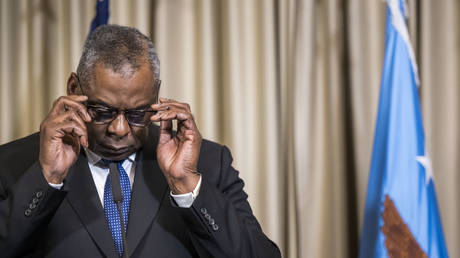ARTICLE AD BOX
Lloyd Austin has acknowledged that he did not handle his cancer diagnosis properly
US Defense Secretary Lloyd Austin has apologized for attempting to hide his bout with cancer from the American people and even the president himself, after returning to the Pentagon earlier this week following a lengthy hospital stay.
Speaking to reporters at a press briefing on Thursday – his first at the Pentagon in two years – Austin admitted that he had attempted to keep his illness private, and that his staff made efforts to cover up his health status as he went in for surgery in December.
“I want to be crystal clear, we did not handle this right. I did not handle this right,” he said. “I should have told the president about my cancer diagnosis. I should have told my team and the American people, and I take full responsibility.”
Read more US defense chief ordered ‘subtle’ ambulance – media
US defense chief ordered ‘subtle’ ambulance – media
Austin was discharged from Walter Reed National Military Medical Center on January 15, after an extended stay due to complications from the surgery the month prior, including symptoms of a blood infection.
He went on to note that his position “means losing some of the privacy that most of us expect,” but acknowledged that “The American people have a right to know when their leaders are facing health challenges that might affect their ability to perform their duties, even temporarily.”
While the Pentagon chief said he did not believe his decision created an atmosphere of secrecy within the Defense Department, he stated that some of his staffers may have believed they were “doing things in my best interest” by concealing his diagnosis from the public and even President Joe Biden. Austin insisted that he did not direct his team to lie, however, but still described his conduct as “a mistake.”
“Again, it’s more about privacy than secrecy. In my case, I should have informed my boss. I did not,” he added.
Following the controversy over the move, the Pentagon is now reviewing how defense officials handled information surrounding Austin’s illness, while the defense secretary said there would be policy changes requiring the notification of several senior officials in cases like his.
During his stay at Walter Reed, Deputy Defense Secretary Kathleen Hicks took up some of Austin’s duties on multiple occasions, the Military Times reported, noting that Hicks had been on vacation in Puerto Rico at the time and was never informed of why she was granted additional authority.
.png)
 9 months ago
8
9 months ago
8








 English (US)
English (US)